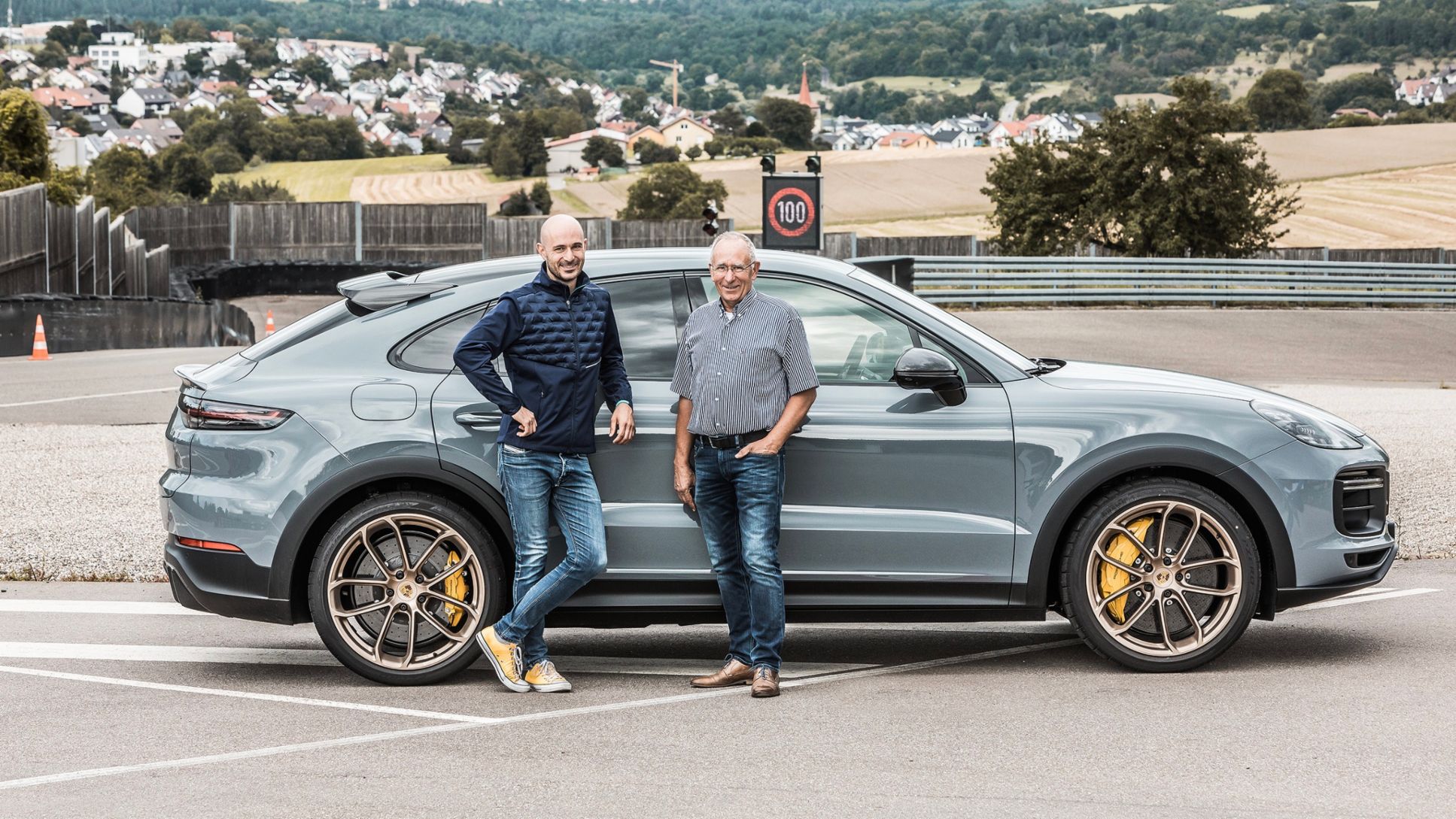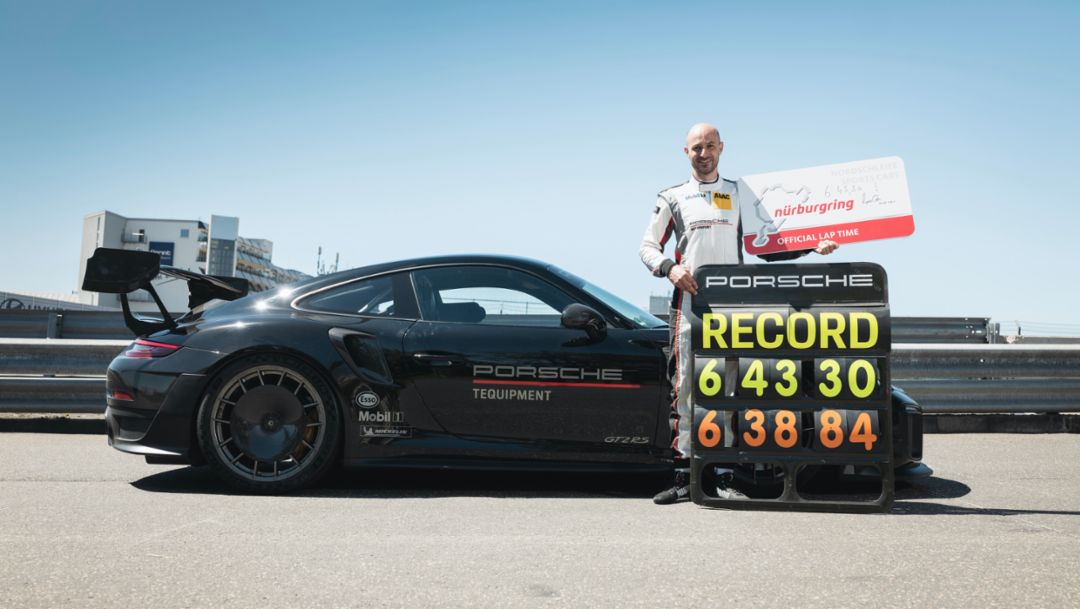Jürgen Kern peers through the new gates at Weissach. The building is unfamiliar to the 67-year-old, and not without reason. After all, it has been several years since he last visited EZW. “Hello Mr Kern! Long time no see! How are you?” are the warm words from behind the glass window at plant security. With a faint smile and a little touched at being recognised, the long-time employee, who is now retired, replies: “Good, thank you!”
His son, Lars, routinely passes through the gate on many of his working days. He is especially popular on Mondays. “Everyone wants to know how the weekend was,” he reports. It’s not leisure activities that they’re enquiring about, but racing successes or – on some days – record laps of the Nürburgring. “Everyone here is passionate about Porsche,” the 33-year-old points out with a hearty laugh.
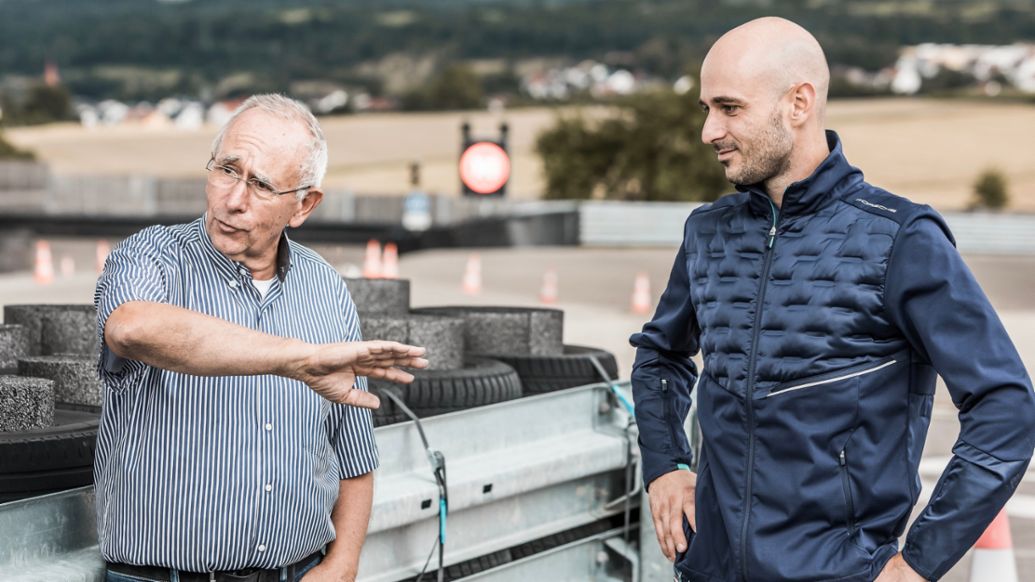
Then the conversation turns to the Black Forest cabin in the infield at the west of the in-house test track. Kern senior and junior tell us about their workplace. They start by saying something that can be summed up in one sentence: “Weissach is synonymous with innovation throughout the automotive world, and carries with it significant appeal”. That has not changed in the 50 years since the beginnings of this testing and ideas workshop.
Start of the Porsche career in 1977
As a young mechanical engineer, Jürgen Kern applied for a job at Porsche in the summer of 1977. An advertisement with the phrase “off-road testing” piqued his interest. In an interview with a representative from the Human Resources department, he learnt that the position had already been filled. However, he was immediately told, “we’ll find something for you”. He took them at their word and was not disappointed. A good two months later, in November 1977, he started work in Weissach. His first role was as an administrator in endurance racing, but his move to quality control for the Cayenne was swiftly followed by assignments around the globe. “Around 1,000 people worked in Weissach at that time, everybody knew everybody else and we all poured our sporting spirit and our hearts and souls into our jobs”. With 6,700 employees, this closeness is probably no longer possible today. Lars Kern nods. Quickly adding: “But the enthusiasm is still there. There’s something special about working here”.
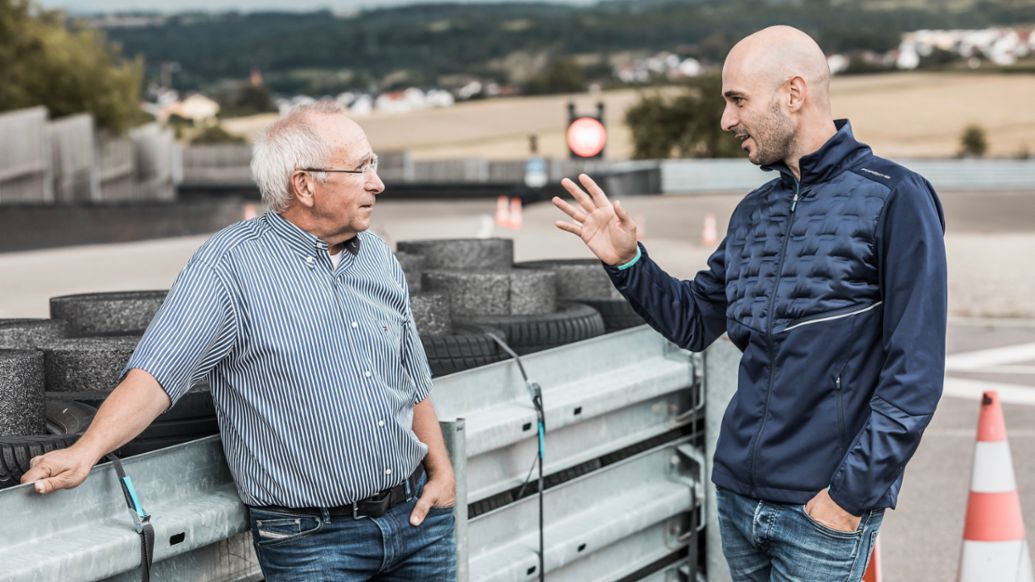
The Kern family settled in Wiernsheim early on, just eight kilometres from Weissach. When the wind is blowing in the right direction, the sound of racing engines is carried here from the test track. Did this sound inspire Lars, the younger of the two sons, to develop a passion for racing? When their father brought home various test cars from the third-party vehicle development department, the boys were underwhelmed. They sometimes gave him a wish list for the next test vehicle. It usually said “911 Turbo”. Looking back, the father says with a grin: “Occasionally, I fulfilled their wishes”.
The development of the first Cayenne
Jürgen Kern has a soft spot for big cars, so it is hardly a surprise that he poured his heart and soul into the development of the first Cayenne a good two decades ago. For a long time, he was not entirely happy with its off-road capabilities. The engineers used his emphatic suggestions to optimise the traction management software to the point that this sports car set the benchmark for its time, both on and off the road, as Jürgen Kern is quick to point out.
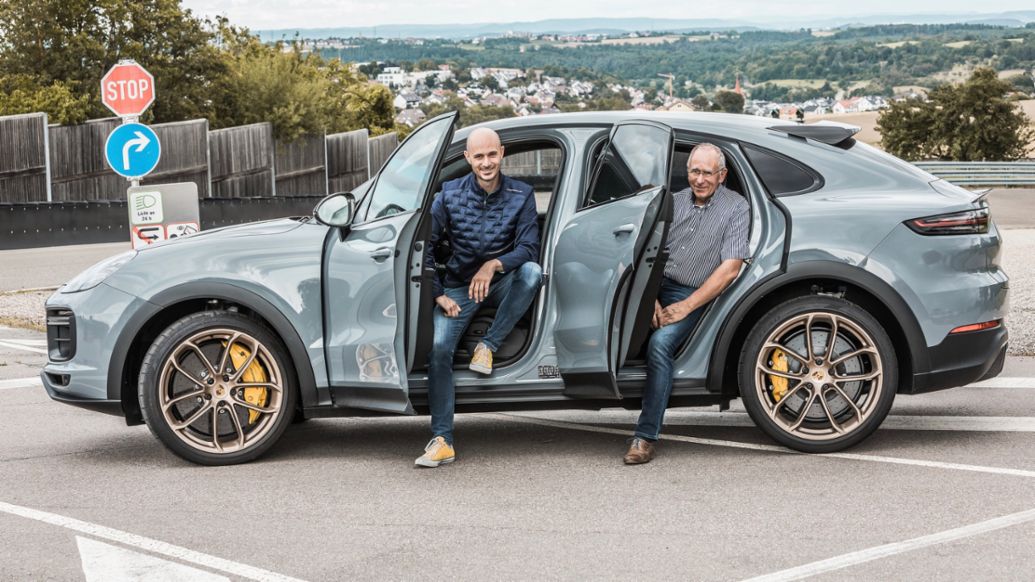
In the meantime, young Lars was playing racing games on the computer. He was worried that he might not enjoy the “real” driving experience behind the wheel. “Karting, which is where a lot of other racers got their start, was never on the agenda for us”. However, in 2005, slalom races in car parks with a Vauxhall Corsa left him hungry for more. With the support of his family and a sponsor, Lars Kern raced in the Porsche Super Sports Cup. He quickly came to realise that privately financed motorsport is a huge drain on resources. The Kern family remained rational.
Joint work of father and son
In 2012, before he had even completed his studies in mechanical engineering, Lars Kern started work as a development engineer in endurance racing and moved very close to his father. Things slowed down a little. “That spurred me on even more, and I wanted to show everyone this, including my father,” says the younger Kern. That is how the two Kerns ended up working together for a few years in the Development of Overall Vehicle Quality (EGQ) department. Lars Kern has long since graduated as an engineer through remote learning. Now he says “it’s a dream to have a job like this”. In addition to having a technical understanding of the vehicles, each development engineer also gets behind the wheel and tests them. The two professionals see themselves as “translators”; they convey the driving characteristics in practice to their expert colleagues. “We tell them what the car does and what it should do,” Lars Kern utters, something that Jürgen Kern can only agree with: “If I feel comfortable in the car, then the customers will, too”.
Whether as a development engineer or as a racing driver, Lars Kern is always behind the wheel today representing Porsche. His experience now earns him international starts in Porsche’s top endurance racing teams. His records at the Nürburgring attract global attention. Just one of many examples: in June, he completed a lap of the 20.8-kilometre Nordschleife in a 911 GT2 RS with Manthey performance kit and a power output of 515 kW (700 hp) in just 6:43.300 minutes – a new lap record for road-legal production sports cars.
Lars Kern has also set up home in Wiernsheim, barely 500 metres from his parents’ house. And there is another reason why the pair see each other almost every day, even though Kern senior retired from his job in 2019: with Lars Kern’s three-and-a-half-year-old daughter and seven-month-old son, he is often called upon to perform his duties as a grandfather. So some things balance out in family life – where once it was Jürgen Kern who used to travel a lot, the baton has now been passed to his son. “My father now has more time to spend with the grandchildren than I do,” says Lars. And then father and son settle into the grey Cayenne Turbo GT for a few quick laps around the test track. After all, the track has barely changed over the decades.
